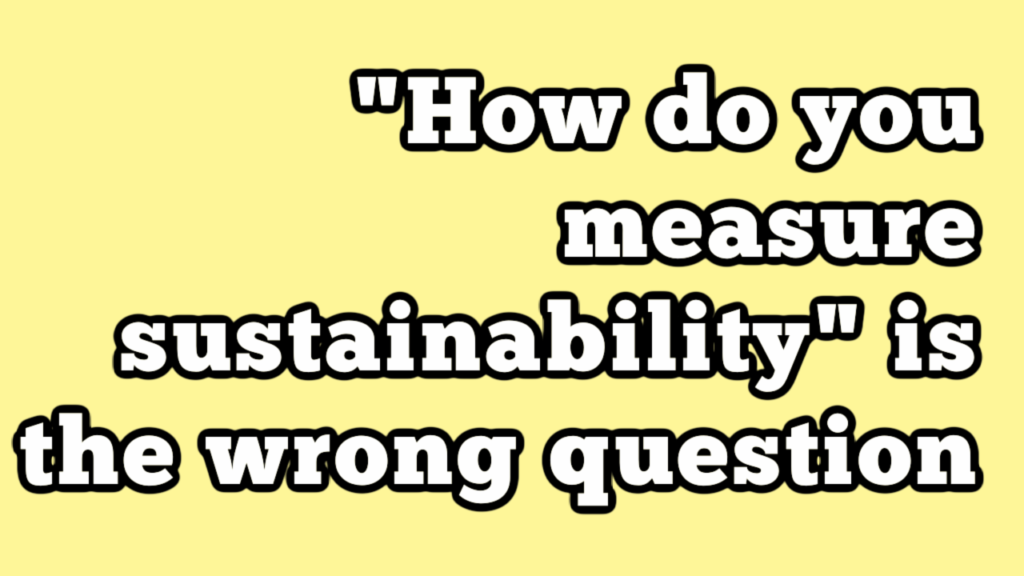“How do you measure sustainability?” is the wrong question

– An over-focus on measurement can lead to ‘hitting the target, missing the point.’ Sustainability isn’t something you measure – it’s something you assess.
– Even if companies can’t disclose soft information, frameworks can at least force them to disclose hard information.
– Reporting frameworks should not be prescriptive, but allow companies to opt out of reporting certain metrics if doing so may distort behavior. Investors shouldn’t take sustainability metrics at face value, but conduct their own analysis to understand the context behind them.
Professor Alex Edmans wrote this note, along with a link to his article on the topic of measuring sustainability:
There’s an unstoppable trend towards more and more sustainability metrics, under the assumption that more information is always better. Transparency is often valuable – but an over-focus on measurement can lead to ‘hitting the target, missing the point.’ Sustainability isn’t something you measure – it’s something you assess.
I was curious. What did he mean by, “Sustainability isn’t something you measure, it’s something you assess.” Alex’s article is really insightful and you really should read the whole thing. I took the liberty of pulling these bullets out to encourage you to do so:
- Central to our argument is the observation that not all information can be credibly disclosed.
- Even if companies can’t disclose soft information, frameworks can at least force them to disclose hard information.
- Knowing that prices will depend more on hard information than soft, managers will take investment decisions that boost hard information, even if they don’t maximize long-term value.
- Stakeholder value is often assumed to be ‘long-term’, in contrast to shareholder value which is labelled ‘short-term’. But stakeholder metrics can be equally as short-term as quarterly earnings, and an excessive focus on them can lead to myopic decisions.
- Reporting frameworks should not be prescriptive, but allow companies to opt out of reporting certain metrics if doing so may distort behavior. Investors shouldn’t take sustainability metrics at face value, but conduct their own analysis to understand the context behind them.
- A common question is ‘how do you measure sustainability?’ As explained in Edmans (2020), this is the wrong question. Sustainability isn’t something that you can measure; it’s something you assess.
